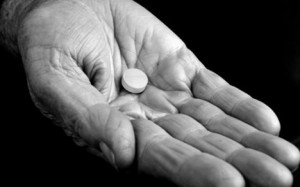A recent report, “Illicit Drug Use Among Older Adults,” from the Substance Abuse and Mental Health Services Administration (SAMHSA) warned that the need for treatment services among older Americans may double in the next decade. Meaning there are new prevention tactics needed to address the rise in drug abuse among baby boomers.
 The report found that an estimated 4.3 million Americans age 50 and older used illicit drugs during the past year, a figure that experts say “is on the rise and reflective of lifelong drug use by aging Baby Boomers.” Marijuana use was more prevalent than nonmedical use of prescription drugs for adults aged 50-59, but among those aged 65 or older, abuse of prescription drugs was more common.
The report found that an estimated 4.3 million Americans age 50 and older used illicit drugs during the past year, a figure that experts say “is on the rise and reflective of lifelong drug use by aging Baby Boomers.” Marijuana use was more prevalent than nonmedical use of prescription drugs for adults aged 50-59, but among those aged 65 or older, abuse of prescription drugs was more common.
Researchers hoped that the report will raise concern for the changes in addiction prevention and treatment that may be necessary to address the growing problem of older generations of substance abusers. “This new data has profound implications for the health and well-being of older adults who continue to abuse substances,” said a SAMHSA Administrator. “These findings highlight the need for prevention programs for all ages as well as to establish improved screening and appropriate referral to treatment as part of routine health care services.”
Common signs and symptoms of drug abuse (HelpGuide.org)
- You’re neglecting your responsibilities at school, work, or home (e.g. flunking classes, skipping work, neglecting your children) because of your drug use.
- You’re using drugs under dangerous conditions or taking risks while high, such as driving while on drugs, using dirty needles, or having unprotected sex.
- Your drug use is getting you into legal trouble, such as arrests for disorderly conduct, driving under the influence, or stealing to support a drug habit.
- Your drug use is causing problems in your relationships, such as fights with your partner or family members, an unhappy boss, or the loss of old friends.
- You’ve built up a drug tolerance. You need to use more of the drug to experience the same effects you used to attain with smaller amounts.
- You take drugs to avoid or relieve withdrawal symptoms. If you go too long without drugs, you experience symptoms such as nausea, restlessness, insomnia, depression, sweating, shaking, and anxiety.
- You’ve lost control over your drug use. You often do drugs or use more than you planned, even though you told yourself you wouldn’t. You may want to stop using, but you feel powerless.
- Your life revolves around drug use. You spend a lot of time using and thinking about drugs, figuring out how to get them, and recovering from the drug’s effects.
- You’ve abandoned activities you used to enjoy, such as hobbies, sports, and socializing, because of your drug use.
- You continue to use drugs, despite knowing it’s hurting you. It’s causing major problems in your life—blackouts, infections, mood swings, depression, paranoia—but you use anyway.


